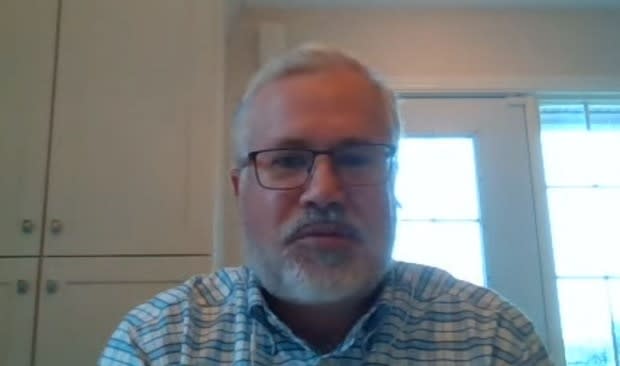Heavy emitters want carbon tax clarity as N.B. plan sits in limbo
New Brunswick's large industrial emitters of greenhouse gases are still waiting for word on whether Ottawa will approve the province's carbon tax on their emissions.
The Higgs government first outlined the proposal, called an output-based pricing system, in June 2019.
Since then, the Trudeau government has been re-elected and has approved the province's consumer carbon tax — but still hasn't said whether the price on industry meets the requirements of the federal climate plan.
"We continue to wait for a response from the federal government," said Vicky Lutes, a spokesperson for the province's Department of Environment and Local Government. "There is no update to provide at this point."
For large emitters, who were supposed to learn sometime this year how much, or whether, they would have to pay, the delay creates financial uncertainty.
"There's a significant amount of uncertainty already with regards to the pandemic and its impact," says Neil Jacobsen, a senior policy consultant for the Atlantica Centre for Energy, a think-tank funded by large energy producers and users.

"Our large emitters are dealing with that particular uncertainty, but amplifying it is the uncertainty around the output-priced pricing system, so we're hoping that both levels of government can reach some level of consensus fairly quickly."
If approved, the provincial system would replace the federal pricing model adopted by the previous provincial Liberal government.
It would impose a much lighter financial burden on emitters that export most of their products, taxing only 0.84 per cent of emissions in 2019, rising to 10 per cent by 2030.
The federal price applies to 20 per cent of emissions.
'It's been silence'
If the provincial system were adopted, emitters would pay the tax this year on last year's emissions, so they're waiting to learn what if any cost they'll have, Jacobsen said.
There's been no indication from Ottawa when a decision will come. Environment and Climate Change Canada did not respond to a request for comment this week.
"It's been silence," Jacobsen said. "We're hoping that now with the provincial election behind us, this issue will percolate up a little higher, because there has been a lot of uncertainty."
He said COVID-19 is probably partly responsible for the delay.
J.D. Irving Ltd. spokesperson Mary Keith said in an email statement that the company supports the plan and hopes it will be approved.

The Higgs government has argued that large exporters that sell into the U.S. market, such as the Irving Oil Refinery in Saint John and several large forestry mills, can't afford to pass on to customers the extra cost of a big carbon tax.
JDI says its forestry operations are a net "sink" for greenhouse gas emissions because it has already reduced emissions, and its trees absorb millions of tonnes of carbon dioxide, offsetting what its plants produce.
New Brunswick's plan
Under the New Brunswick plan, each industrial facility will have a performance standard to meet. Those that go beyond it will have to pay, while those that stay below it can earn credits that can be sold to the high emitters.
The plan covers the same industrial sectors as the federal version, applies to the same gases and applies the same price scale of $20 per tonne this year, rising to $50 per tonne in 2022. The difference is the levy applies only to a tiny fraction of emissions.
The New Brunswick system also seeks to avoid hitting NB Power with big carbon-price costs that would lead to higher rate increases,
The plan divides the utility's fuel sources for its generating stations into three different categories and applies the tax differently to each of them.
The province says the plan will reduce "emissions intensity" — the ratio of greenhouse gases relative to what the industrial plant producers — by 10 per cent by 2030. But the actual reduction in emissions will be smaller.
Even so, it would allow the province to reach the Paris climate goal of getting emissions to 30 per cent below 2005 levels. Emissions are already 28 per cent below those levels.
Consumer tax in play since April
New Brunswick consumers have been paying a provincial carbon tax on gas since April 1 of this year.
The 6.6-cent-per-litre tax replaced the federal "backstop" tax that had been applied at the pumps.
PC legislation passed earlier this year to implement the tax also reduced the provincial excise tax on gasoline by 4.6 cents, meaning the net cost of the tax to consumers is two cents.
The government's plan is to continue lowering the excise tax every year by the same amount the carbon tax rises — meaning the net impact will remain two cents per litre indefinitely.
That contradicts the logic of the federal plan that a gradually increasing carbon tax will create a greater incentive over time for consumers to burn less fuel. Ottawa approved the model despite that.


